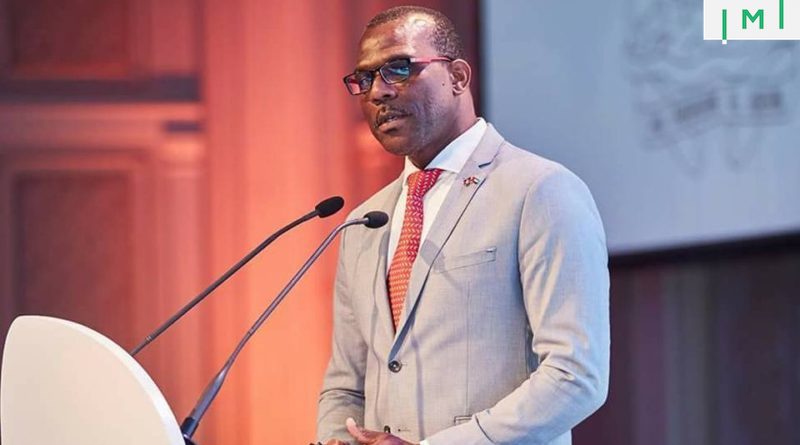Caribbean CBI Due Diligence: You Can Take it to The Bank
As I interact with fellow industry professionals and clients alike, the question regarding the nature of the Caribbean CBI due diligence regime is regularly raised. Below, I aim to answer that question by providing a contextualized outline of the due diligence processing and the role of the various investigative and intelligence agencies who contribute to the process.
Some in the industry may declare that Caribbean banks play an outsized role in most citizenship by Investment programmes: “After all, government has the sole responsibility and discretion to make and administer laws”.
In that case, why should a bank’s “ineligible country” list impact a government’s decision as to which countries’ resident citizens are eligible to apply for citizenship through its CBI programme? (“Ineligible country” lists are primarily comprised of sanctioned countries.) Perhaps a brief description of the environment in which Caribbean banks operate may provide context.
A global trend has emerged whereby banks are closing accounts deemed high risk, which are often those belonging to non-governmental organizations, foreign embassies, correspondent banks, and money transfer businesses.
This practice, referred to as de-risking, is perhaps an inevitable response from the financial services industry given the ascendance of AML/CFT in recent years, coupled with the 2008 financial crisis, which prompted the sector to rethink the way it defines and manages risk. However, there remains ambiguity around the criteria for de-risking actions and a lack of uniformity in its implementation across institutions.
Nevertheless, Caribbean banks, more particularly OECS (Organization of Eastern Caribbean States) banks, five of the eight members of which operate a CBI programme, are severely negatively impacted. In most cases, there is a single US bank providing correspondent banking services in each country. Fearing the loss of this correspondent bank relationship and facing heightened AML/CFT practices, local banks have become even more ultra-conservative as it relates to onboarding and retaining customers.
Read also: Six Signs an Investment Migration Program’s Due Diligence Process is Not Good Enough
KYC: Not as easy as 1-2-3
A consequence of this environment is the determination that CBI funds represent an unacceptable level of risk for most banks operating in the Caribbean, leading to a situation where only the indigenous bank in that country accepts CBI receipts. Such a delicate reality necessarily means that those banks will exercise extreme caution in their KYC (Know Your Customer) process to ensure adherence to the dictates of their correspondent banks.
The environment being such and as required by a robust KYC policy and practice, local banks insist on carrying out their own KYC research on each CBI applicant before allowing funds to flow into the banking sector. For some of the programmes, for example those of Antigua & Barbuda and Grenada, this means submission of the relevant documents to the bank for such checks and the approval of the bank before the file is submitted to the Citizenship by Investment Unit (CBI Unit). Once the bank has indicated that it is prepared to accept funds from the client/applicant, the full complement of documents can then be submitted to the CBI Unit for processing.
To some, this represents a duplication or delay in the process. However, this “additional” step in the process is vital to the sustainability of CBI programmes in the Caribbean. Subsequently, once the application is approved by the Unit, proof of the approval is provided to the bank, and the contribution and/or investment funds can then be submitted to the bank.
Read also: Flawed RCBI Due Diligence: An Indictment of Due Diligence, Not of RCBI
The Caribbean CBI due diligence regime has become more robust over time. It entails research and investigation of CBI applicants and their families in countries where they would have lived for more than six months in any given year over the last ten years. The process can be described as having four levels:
- In-house research by due diligence/compliance officers;
- Research by an authorized government body such as the FIU (Financial Intelligence Unit);
- Engagement with CARICOM IMPACS; and
- Contractual arrangement with a private due diligence firm.

In addition to conducting their own desktop research, Units work with outside agencies to ensure comprehensive investigation of all eligible applicants. Locally, the FIU, often staffed by ex-police officers, conducts its own investigations in partnership with international border and intelligence agencies. CARICOM IMPACS, which is part of the Regional Framework for Crime and Security, through its sub-agency, the Joint Regional Communication Centre (JRCC), also conducts investigations on applicants on behalf of its member countries. A good private due diligence partner offers a combination of desktop research and “on-the-ground” human intelligence to provide a comprehensive picture of the subject’s life over the past ten years.
The investigation and research include documentation verification on details such as identification, passport, address, employment/profession/business ownership, and source of funds and investment. It includes litigation, bankruptcy, regulatory and law enforcement checks, as well as media and internet searches. The resulting report also covers reputational risk, country (of origin) risk, and politically exposed persons (PEP) status.
Additionally, the private due diligence firms’ report provides the CIU with findings on the above areas and, more importantly, an analysis of such findings and a suggested associated risk level, which is determined by a thoroughly detailed risk matrix. These reports and those provided by JRCC and FIU form the cornerstone of a Unit’s approval process.
Deeper collaboration between banks and the Citizenship by Investment Units can only serve to make CBI programmes more sustainable and viable.
Thomas Anthony is a former acting Chief Executive Officer and Deputy Chief Executive Officer of the Antigua Citizenship by Investment Unit and former Global Head of Exiger’s Immigration, Citizenship and Visa division. More recently, Thomas was the Chief Executive Officer of the Grenada Citizenship by Investment Unit. He is currently Government Advisory Director at Beyond Residence & Citizenship, a leading RCBI firm.



